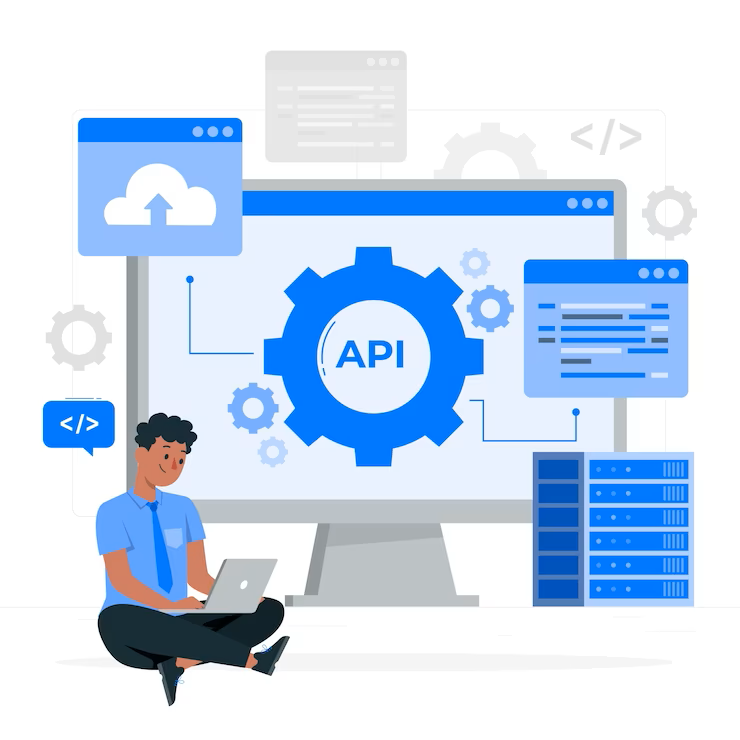Discover the power of SQL Server Reporting Services (SSRS) integration through total APIs and open ports. Learn how to leverage key APIs for report generation, customization, scheduling, and data retrieval, to enhance collaboration and productivity for your business.
Introduction
SQL Server Reporting Services (SSRS) is a powerful reporting tool that allows businesses to create, customize, and distribute reports based on their data. With SSRS integration, businesses can unlock the full potential of this reporting tool by leveraging total APIs and open ports for enhanced collaboration and productivity. In this blog post, we will explore how mastering SSRS integration can empower businesses to achieve better collaboration and productivity through the use of key APIs.
- Report Generation API: The Report Generation API allows businesses to programmatically create, customize, and generate reports using SSRS. This API provides the flexibility to design reports dynamically based on business requirements, customize report parameters, and format report outputs. By leveraging the Report Generation API, businesses can automate the report generation process, saving time and effort, and ensuring consistency in report outputs.
- Customization API: The Customization API enables businesses to customize the look and feel of SSRS reports programmatically. This API allows businesses to apply custom styles, themes, and branding to reports, ensuring consistent branding across all reports. With the Customization API, businesses can create visually appealing reports that align with their brand identity and improve user experience.
- Scheduling API: The Scheduling API allows businesses to programmatically schedule and automate report generation tasks. This API enables businesses to set up recurring report schedules, configure delivery options, and specify recipients for report distribution. By leveraging the Scheduling API, businesses can automate report distribution, ensuring that reports are delivered to the right people at the right time, and improving collaboration and decision-making.
- Data Retrieval API: The Data Retrieval API provides businesses with the ability to programmatically retrieve data from SSRS reports. This API allows businesses to extract data from reports in various formats such as CSV, Excel, or PDF, and use it for further analysis or integration with other applications. The Data Retrieval API enables businesses to access report data in real-time, empowering data-driven decision-making and enhancing productivity.
- Subscription API: The Subscription API allows businesses to programmatically manage subscriptions in SSRS. This API enables businesses to create, modify, and manage subscriptions, specify delivery options, and set up subscription schedules. By leveraging the Subscription API, businesses can automate report subscription management, ensuring that the right reports are delivered to the right recipients at the right time.
Use Cases
- Business Reporting: SSRS integration allows businesses to create and automate various types of reports, such as financial reports, sales reports, marketing reports, and operational reports. These reports can be generated on-demand or scheduled to run at specific intervals, providing up-to-date information for decision-making.
- Data Analysis and Visualization: SSRS integration enables businesses to retrieve data from various sources, transform it, and generate reports with visualizations such as charts, graphs, and tables. This allows businesses to analyze data and gain insights for making informed decisions.
- Customized Reporting: SSRS integration provides businesses with the ability to customize reports based on their specific requirements. This includes adding custom branding, logos, and styles, as well as tailoring report parameters and formats to suit the needs of different users or departments.
- Report Distribution: SSRS integration allows businesses to distribute reports to designated recipients via email, file share, or other delivery options. Reports can be scheduled to be sent at regular intervals or on-demand, ensuring that the right reports reach the right people in a timely manner.
- Report Subscription Management: SSRS integration enables businesses to manage report subscriptions, including creating, modifying, and scheduling subscriptions for different users or groups. This ensures that users receive reports automatically based on their subscription settings, reducing the need for manual report distribution.
Benefits
- Enhanced Collaboration: SSRS integration allows different stakeholders within an organization to access and view reports, enabling better collaboration and decision-making. Reports can be shared with team members, departments, or external stakeholders, ensuring that everyone has access to accurate and timely information.
- Increased Productivity: SSRS integration automates the report generation process, saving time and effort compared to manual report creation. Reports can be scheduled to run automatically, reducing the need for manual intervention, and ensuring that reports are available when needed.
- Customized Reporting: SSRS integration provides businesses with the flexibility to customize reports according to their unique requirements, ensuring that reports align with their brand identity and user preferences. Customized reports can improve user experience, making reports more engaging and actionable.
- Real-time Data Access: SSRS integration allows businesses to retrieve data from various sources in real-time, enabling data-driven decision-making. Real-time access to data ensures that reports are based on the latest information, providing accurate insights for better decision-making.
- Scalability and Flexibility: SSRS integration provides businesses with a scalable and flexible reporting solution that can handle a large volume of reports and users. SSRS can be integrated with other applications and systems, making it a versatile reporting tool that can adapt to changing business needs.
Conclusion
Mastering SSRS integration through total APIs and open ports can unlock the full potential of SSRS for report generation, customization, scheduling, and data retrieval. The use cases, benefits, and key APIs discussed in this blog post highlight how SSRS integration can enhance collaboration, improve productivity, and provide flexibility in report generation and distribution. By leveraging the power of SSRS APIs, businesses can create efficient, automated, and customized reporting workflows that streamline report generation, improve collaboration, and drive data-driven decisions. Stay ahead in the competitive business landscape by mastering SSRS integration and harnessing its power for enhanced collaboration and productivity.

